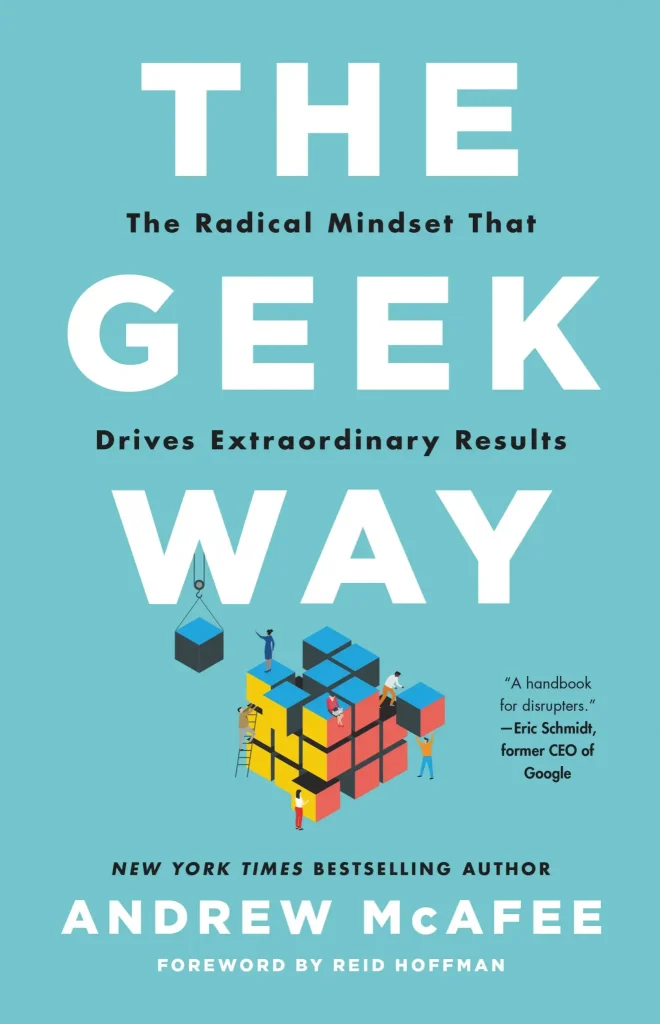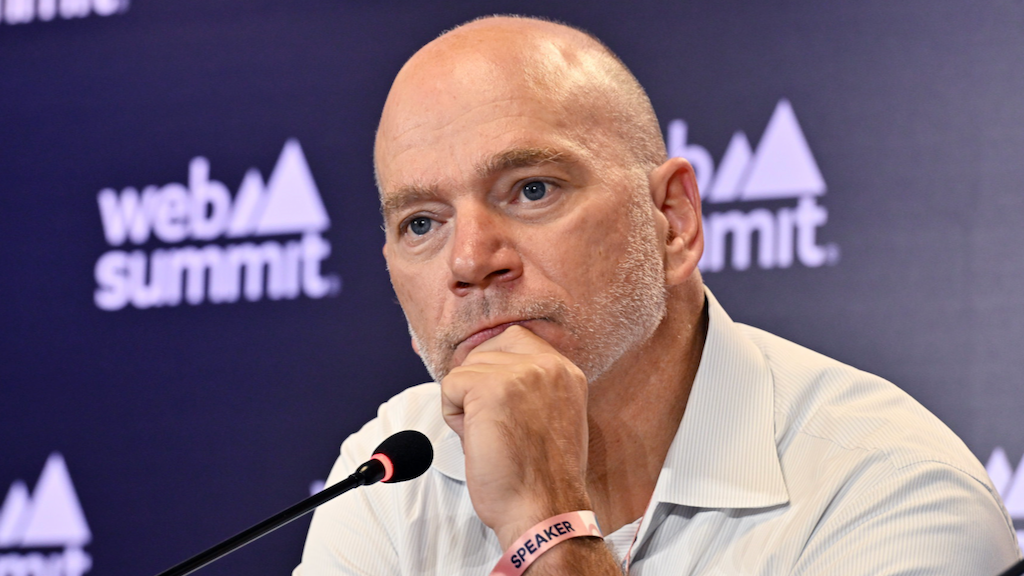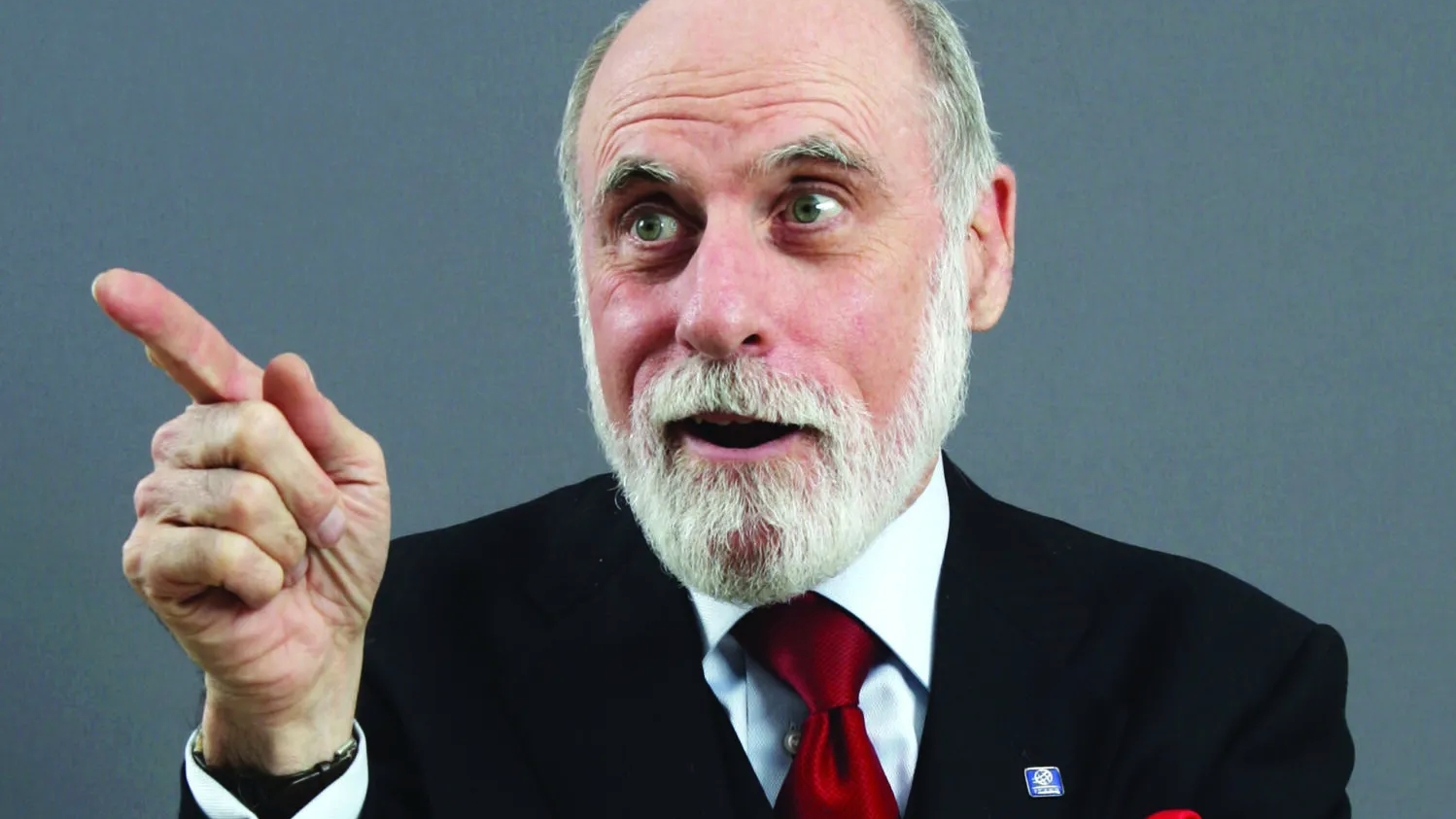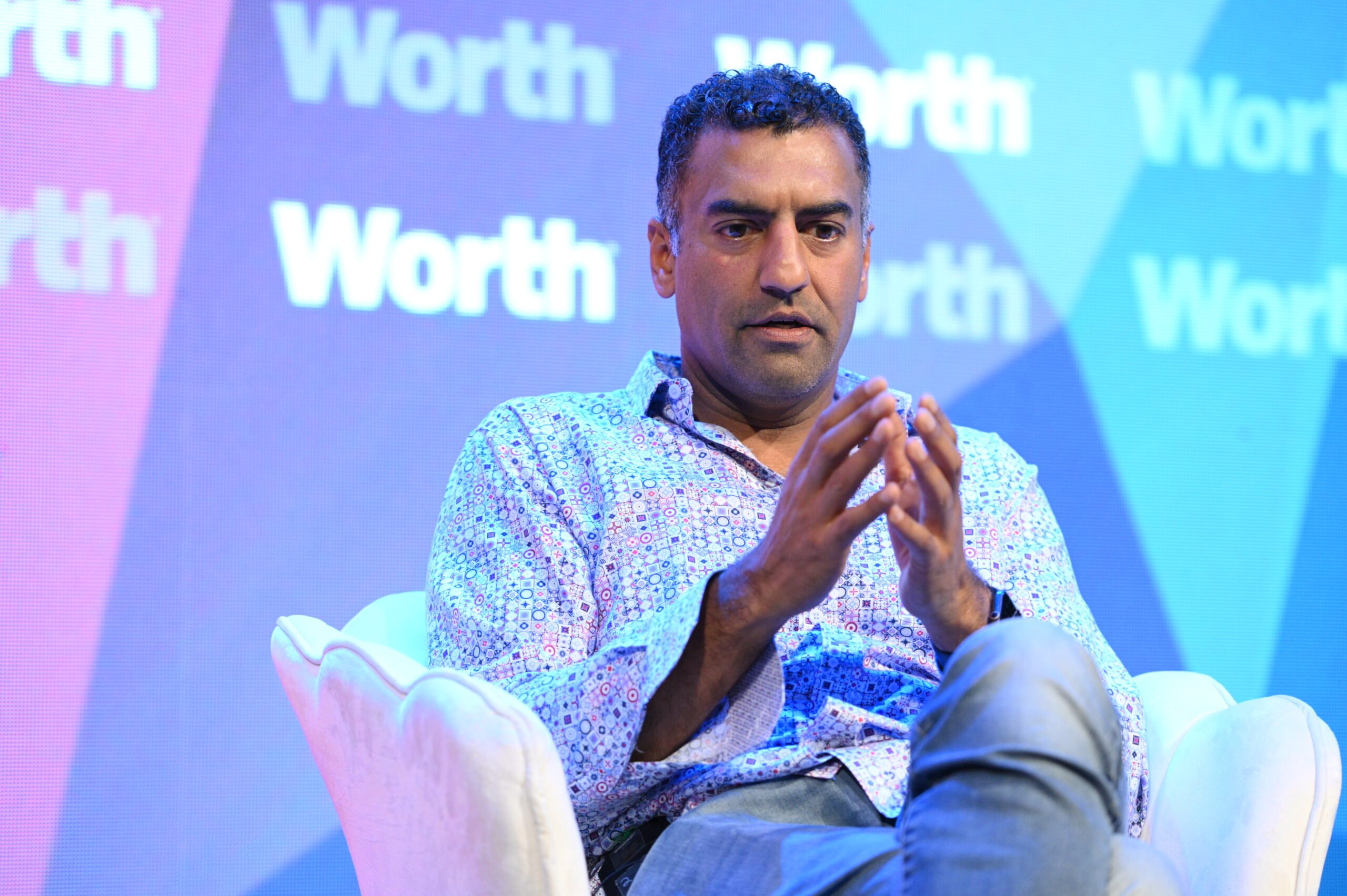“Did you hear at the beginning where I said I wrote a book and nobody wants to talk about it,” jokes Andrew McAfee in the middle of his press conference on the first day of Web Summit, the annual tech conference in Lisbon, earlier this month. This is in response to a barrage of questions about regulation and its impact on AI, innovation, creativity, and the like—all topics that McAfee, a principal research scientist at MIT and co-director of its Initiative on the Digital Economy (IDE), kicked off at the opening keynote, “How we regulate AI.”
His opening keynote, on November 14th, coincided with the release of his latest book, The Geek Way, and he didn’t get to discuss it much at the press conference. So I sat down afterward with the author of The Second Machine Age (with Erik Brynjolfsson), among other books on technology, to talk about his first foray into covering organizational management. In the book, McAfee explores today’s most successful and innovative companies from Amazon and Google to Netflix and SpaceX—love ‘em or hate ‘em—and why the so-called “geeks” who started and continue to lead them, can offer lessons to anyone looking to build a company in the 21st century.

The Norms of Geek Way Companies
“I decided to write this book because I became convinced that a bunch of geeks had figured out a better way to run companies,” McAfee says. “I wanted to understand it and explain it.” One of the core ways that McAfee organizes his findings is by outlining what he sees as “norms” that are true to every geek-run organization. These norms, per McAfee, are similar to overarching principles or practices in a company’s culture; however, they aren’t official or written down on a wall or in an employee handbook. They’re just common to all geek-run organizations. The geek way norms are science, ownership, speed, and openness. How these shake out in any company may be familiar to anyone who has ever worked at a startup or tech firm, but they’re surprisingly not as widespread at all types of organizations or companies, particularly ones that have been around for many years.

By science, McAfee means not just gathering evidence around a new product or strategy, but also discussing and arguing about it with others in the organization. Ownership, he says, essentially entails, “devolving authority down to an uncomfortable degree and having a fairly atomized organization.” The ownership norm is what developed into AWS (the Amazon Web Services cloud platform) for Amazon. “It led to ownership as a leadership principle,” he says. “It was integral in the birth of its participation in the cloud industry to actually build a modular tech stack so that you can have a modular organization.”
The third norm, speed, encapsulates the idea of minimum viable product or plan, and iteration. This is the essence of agile software development models and the “move fast and break things” ethos of so many a tech company, which has spread to everything from entertainment to politics. “Think about Tesla pushing an update to all of its cars in a week versus VW being years late with its electronic vehicle software,” says McAfee.

Difficult Personalities
The last norm is openness, which is the willingness to be wrong, to listen to arguments about a product or direction from subordinates, and have the flexibility to pivot.
Given that many tech companies—and their ‘geek’ leaders—aren’t at the top of any popularity lists right now, it might seem like a strange time to be debuting a geek strategy to build a 21st-century company. But McAfee is careful to separate the norms from the nerds themselves. “I don’t know any person or company that follows every element of the geek way all the time,” he says. “There’s a difference between the four norms of the geek way and what we see in reality. That doesn’t mean that the norms aren’t valuable and powerful. It just means they’re hard to practice universally.”
McAfee cites SpaceX, founded by Elon Musk in 2001, as an example of a geek way success story. In a little over two decades, it has grown into the only company in the world that builds commercially viable, reusable rockets, despite having a fraction of the funding of competitors (and a payments entrepreneur founder with zero aerospace experience). And while SpaceX was the only company that could provide hundreds of portable, military-grade, high-speed satellite internet terminals to Ukraine after the Russian invasion—and is now in talks with Israel to do the same—it faced a backlash when Musk threatened to stop providing the free service after enduring everything from Twitter insults to lack of payment.
“The reason he was able to do that is because he’s the CEO of the only company that could deploy that technology,” says McAfee. “The way you fix that is with competition. Build more than one organization on the face of the planet that could make something like that. Shame on [Elon] for playing ‘general,’ and shame on the rest of the space industry for not being anywhere near able to deploy that kind of capability.”
What about Mark Zuckerberg and Meta’s disastrous, lackluster, and expensive foray into the metaverse over the past four years? (Meta’s Reality Labs division has lost $46.6 billion since 2019, according to the company’s most recent earnings report.) Where was the science on that? “Hubris is a thing—a very, very human thing,” says McAfee, “especially if you have had stratospheric success. They stop listening. They stop practicing in the realm/norm of science, which is having an evidence-based egalitarian argument.”
“I think we see that Meta got way overextended on the metaverse,” he continues. “I think we watch that with Elon with whatever we’re supposed to call Twitter now. It’s a very common failure mode. You remember New Coke, right? Have the geeks figured out how to eliminate hubris? No, it’s a very hard thing to eliminate.”








